elders
Taking a News Fast for Mental Health
 Mental Health and the News
Mental Health and the News
Something I see more and more recently is how troubled and even distraught many of my clients are about the state of our country. When I ask them about how much they are watching the national news, many of them say, “Every morning and every evening.” What I ask them how it makes them feel they report “Terrible! I’m so upset (angry, frustrated, disappointed, fearful) about what is going on!”
These folks may be rimobolan Republicans, they may be Democrats or no party affiliation. It’s not about political leanings as much as it is about their memories of how various politicians they admired were once able to communicate across party lines to “put country first and get things done”. It greatly 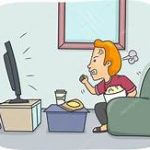 concerns my clients that this bipartisan spirit does not seem to be happening anymore. They get so mad about it that their blood pressure and overall stress levels are not healthy. This is the situation for many Americans now, young or old or in-between.
concerns my clients that this bipartisan spirit does not seem to be happening anymore. They get so mad about it that their blood pressure and overall stress levels are not healthy. This is the situation for many Americans now, young or old or in-between.
My senior clients, many of whom are retired, are educated, hard-working, middle class Americans who care about our country. They are also facing plenty of issues related to aging, illness, having less energy, figuring out their relationships with adult kids and grandkids, their identities and value in their older years, the big existential questions of life, and yes, oftentimes depression and anxiety. The news media these days can make them sick!
So, we have been experimenting with various ways they can try taking a “news fast”. One woman in her 80’s reported that she stopped watching the news on television where the sound bothered her so much – the music, the strident tones of the the newscasters voices and the video graphics. She has found that, for her, *reading* the news in small, manageable bites is fine. She stays current with anything important and can read the words without the over-stimulation of noise.
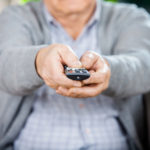 Others have stopped watching or reading altogether for a few days at a time to see how this impacts their spirit of well-being and mood. Another client is being creative by playing around with getting her news through the late night comedy shows and via short comedic clips on YouTube. She reports that she feels much calmer and that laughing more feel great!
Others have stopped watching or reading altogether for a few days at a time to see how this impacts their spirit of well-being and mood. Another client is being creative by playing around with getting her news through the late night comedy shows and via short comedic clips on YouTube. She reports that she feels much calmer and that laughing more feel great!
The point is that constant drumbeat of 24/7 cable news shows, along with media hungry politicians and pundits, can seriously contribute negatively to people’s emotional health. Take a break from it to see if you sleep better or just feel a little less down. Finding some balance that works for you may not be the same as what works for your friend or family member. The important thing is to find that balance and to remember that the good things that happen in life tend not to be reported in the media and that focusing on the good things all around you is a great help to your mental health.
So… consider taking a “News Fast” from time to time and see how you feel! The news will still be there when (if) you come back to it!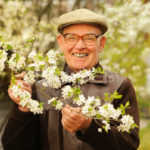
Broad Band – Raising Women Up Out of Invisibility
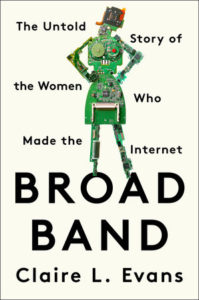 This week we saw the release of a new book chronicling a hidden segment of the female population who made important contributions to our world without most people ever realizing it. Similar to Hidden Figures, although perhaps not as dramatic as a WWII story, the women in Claire Evans’ Broad Band were creatives, science geeks, pragmatists, entrepreneurs, activists, visionaries and householders trying to make a living. They were some of the very few pioneering women who pushed out the boundaries and succeeded in the vastly male-dominated world of science and computing.
This week we saw the release of a new book chronicling a hidden segment of the female population who made important contributions to our world without most people ever realizing it. Similar to Hidden Figures, although perhaps not as dramatic as a WWII story, the women in Claire Evans’ Broad Band were creatives, science geeks, pragmatists, entrepreneurs, activists, visionaries and householders trying to make a living. They were some of the very few pioneering women who pushed out the boundaries and succeeded in the vastly male-dominated world of science and computing.
Claire takes on the daunting task of sifting through so many many stories and voices to feature just a few spanning over 100 years. She begins with ground-breakers like Ava Lovelace, Grace Hopper and the “two Betty’s” (Betty Jean Jennings and Betty Snyder). She spins the tales of “A Girl Named Jake” and tracks the women leaders through the days of the ARPANET, the early BBS’s, the dial-up’s, the emergence of the web and the world of gamers. As Claire poignently writes at the end of her book, there are hundreds of more stories to tell and women to feature – she hopes others will take up on the torch and keep giving voice to women’s contributions and stories.
I am so honored to have a few of my own stories told in Claire’s chronicle. It was a blast of a ride  to launch the first women-focused online site Women’s Wire to entice women to try out this new medium which would change our world. There were so few women online in the beginning. It was clear to me that we needed more diversity and more different kinds of voices involved in this new medium. Trying to teach women how to use computers was great fun – I was able to move from our mighty band of 1500 initial Women’s Wire subscribers to launch and mange a huge new “women’s channel” of 7,000,000 female subscribers at AOL. Once the doors opened to the Net for women, they flooded online and have never looked back.
to launch the first women-focused online site Women’s Wire to entice women to try out this new medium which would change our world. There were so few women online in the beginning. It was clear to me that we needed more diversity and more different kinds of voices involved in this new medium. Trying to teach women how to use computers was great fun – I was able to move from our mighty band of 1500 initial Women’s Wire subscribers to launch and mange a huge new “women’s channel” of 7,000,000 female subscribers at AOL. Once the doors opened to the Net for women, they flooded online and have never looked back.
As a lifelong activist and feminist, I find myself working every day now to bring my own version of justice and fairness and kindness to this population I am entering – seniors. This population too – especially senior *women* – needs to become more visible and have their voices heard. They all have rich stories – adventures, failures, successes, lessons learned that can be passed on. And this is time in our country when we can really use those voices sharing what they have learned, often the hard way, and what they have accomplished through plowing hard ground – accomplishments that often are simply taken for granted in the present time.
Although I have not yet finished Claire’s book, I look forward to reading more pages every day and learning about the amazing women who invented and contributed (and led!) in the field of computing. Some of the women are renowned to me and some I am just learning about. Again, such an honor to have a small place in this book amongst so many amazing women and kudos to Claire for taking on this challenge and giving VOICE to so many whose stories are fascinating and worthy of being told.
Successful Aging Takes a Team!
Successful Aging Takes A Team!
Let’s talk about why it’s critical to their quality of life to have a strong support team around seniors who are growing older.
Why?
Because I see so many older people in my private practice who face, for example, situations where they are grappling with:
- family members or loved ones with very strong opinions about what is best for them – opinions danabol that may or may not be informed and wise
- *no* family members or close friends at all to advocate for them
- a primary care physician who is prescribing medications but not following them in after-care. What is known as the “diagnose and adios” routine.
- a specialist or two who is also prescribing – say for instance a cardiologist or endocrinologist – but who is not tracking the interaction of *all* of the medications involved
- a psychiatrist who may be also be treating and prescribing psychiatric medications
- possibly a nutritionist, alternative health practitioner or two prescribing supplements, vitamins and minerals which may all be fine but which also carry side effects that can contribute to mood problems.
Way more often than not, there is very little, if any, communication and coordination amongst the health professionals. This coordinator function may have been done in the past by the primary care doc who managed the broad perspective overview of how each of his patients were doing. But nowadays primary docs are under so much time pressure in their practices that they just do not have time take on this role.
In order to build that coordinated team which will support an individual’s successful aging, it takes someone stepping into the role of being a skilled ADVOCATE. A person who knows how to coordinate effective communication amongst team members and who is in charge of reaching out on behalf of the patient to represent their concerns. Someone who can help the patient communicate their concerns and questions to other team members, and who also helps the patient remember the answers and instructions of doctors. Team members need to work in concert with each other, supporting the various lens through which each patient is viewed.
All of this process needs to be done with the utmost RESPECT for each patient where the patient has TRUST in the advocate that he or she is representing the wishes of the patient towards the goal of the best possible quality of life at any stage.
Gerontologists and mental health professionals who understand the importance of building good communication and coordination amongst care teams can be invaluable to the patient and family. Sometimes, it is care managers who provide this role, sometimes it’s an adult child, and sometimes it’s gerontological counselor.
Whoever it is that takes the lead in this role, a support team that is identified, built, coordinated and in good communication, will result in a patient who is much more likely to thrive and much less likely to fall through the cracks.
This is the health care situation for older people in our country today. Just the facts. And totally doable to navigate through it successfully. With help. With a solid, caring team.
A New Year & A New Perspective
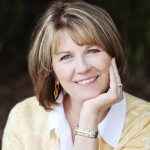 A New Year & A New Perspective
A New Year & A New Perspective
Dear friends and colleagues in the healing arts,
2015 presented me with some interesting challenges. After the death of my beloved mother and the near death and continued illness of my husband, I wondered how we healers can continue to serve our patients when we ourselves are in the midst of tough times. Maybe some of you have come up against this question too.
What I discovered is, as songwriter Leonard Cohen writes, “The birds they sang at the break of day. Start again I heard them say. Don’t dwell on what has passed away or what is yet to be. Ring the bells that still can ring. Forget your perfect offering. There is a crack in everything. That’s how the light gets in.”
It’s this last part that has surprised me. What an unexpected gift is the grace and light that can emerge out of adversity. What I am learned continually deepens both my work and my home life.
As we get older, we find ourselves adding to our toolkit of life skills. Mindfulness tools have reentered my life and work in a big way. And so has my intention to reach a much wider audience through teaching nationally about conscious aging. The need and demand for navigation help is so great as the boomer generation enters the unfamiliar terrain of older life.
If you have friends, family or patients in these populations below who you think I might be able to help or if you have questions yourself, please feel free to reach out anytime:
- People in their 50’s, 60’s and 70’s waking up to their own sense of aging – often through illness or other changes in themselves or their loved ones. They seek answers, solutions, and guidance.
- Adult children of aging parents who feel confounded and frustrated about how to best help their parents through a myriad of difficult circumstances. They are the sandwich generation with aging parents, children and often grandchildren too.
- Families where adult children and aging parents need to and want to come to some new understandings and find a closeness now to the extent they can while they can still can.
- People in their 80’s and early 90’s who are facing their last years with all that that entails – memories, regrets, fears, peace and contemplation – all healthy parts of this stage of life. Having a genuinely caring nonjudgmental skilled listener is so valuable.
You might already know that there are very few psychotherapists in Marin who have advance training in gerontology. With my expertise in the fields of aging, communication, business, medicine and psychology, I am uniquely qualified to help your midlife and older patients, friends and family.
My offices are in Mill Valley and San Anselmo. Telephone appointments are also available for people who do not live close by. I provide a free initial phone consultation. And if I can’t help, I can often steer people to other beneficial resources.
With warm wishes for a peaceful 2016,
Nancy Rhine, MS, LMFT, CPG
415-378-6577
nrhine@gmail.com
